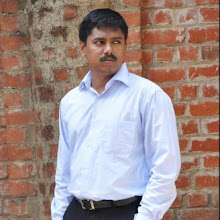Without its software, a computer is basically a useless lump of metal. With its software, a computer can store, process, and retrieve information; play music and videos; send e-mail, search the Internet; and engage in many other valuable activities to earn its keep. Read more: http://www.bench3.com/2009/07/operating-system-is-most-fundamental.html.
Microsoft Windows is the world’s most popular operating system, at least for desktop computers, but Linux is a completely separate endeavor. "Ubuntu" is a version of the Linux operating system. An operating system is the software that “runs your computer”.
GNU (G-Noo)
The ball started rolling back in the 1980s, when a hugely talented computer scientist called Richard Stallman decided to create a clone of a venerable operating system called Unix. At the time, Unix ran many of the world’s industrial and academic computer systems.
Stallman did this because Unix was becoming increasingly proprietary—it was no longer permitted to share its source code (the listings created by programmers), as had happened since the inception of Unix in 1969.
This was anathema to Stallman, who believed sharing software was natural and healthy. He decided his version of Unix would always be freely available, and invented the legal and ethical concept of Free Software to ensure this happened. Put simply, Free Software says users should always have the freedom to share software, without restrictions.
On a technical level, Free Software guarantees the right to view and also modify source code, or even use it as a basis to make a new program. However, any additions or changes must be released as Free Software too, so others can continue to benefit.
The Free Software ideal is enshrined in a software license applied to all Free Software projects. It’s called the GNU Public License, or GPL. This is like Microsoft’s End User License
Agreement that comes with Windows (and you see whenever you install Windows from scratch), except whereas the Microsoft EULA (End Users License Agreement) prohibits sharing Windows under any circumstances, the GPL (General Public License) says exactly the opposite—that you can always share the software! Stallman called his version of Unix “GNU” (pronounced G-noo). This is a recursive acronym, standing for GNU’s Not Unix.
In other words, the Linux kernel GNU grew into a major project with many contributors. However, good as it was, it lacked a kernel. A kernel is the program at the heart of any operating system that takes care of fundamental stuff, like letting hardware communicate with software.
Almost by accident, a chap called Linus Torvalds provided a solution. In 1991 he started a personal project to create a kernel. Due to a naming error when his kernel was uploaded to the Internet, it got named after him and became known as Linux—a hybrid of “Linus” and “Unix”.
Crucially, Torvalds chose to release his kernel as Free Software, and invited any interested party to give him a hand. They did. Thousands of people around the world got involved. As the years went by, the project became more and more important, and grander in its design and outlook. Today, the Linux kernel receives sponsorship from many major corporations, including IBM.
Torvalds continues to oversee and contribute to the Linux kernel project to this day. He humorously describes his role as a “benign dictator”.
Because the kernel is such an important aspect of an operating system, people began to refer to the combination of GNU and Linux simply as Linux. This upset Stallman, who asked that the name GNU/Linux be used instead. But it was too late. The name stuck.
Whether to refer to the operating system as GNU/Linux or simply Linux is a debate that continues to this day. Software from other sources is typically included in the Linux operating system too, alongside GNU and the Linux kernel. Virtually all the software in Linux is Free Software, even though much of it has no direct ties with GNU or Richard Stallman.
Arguably, Stallman’s greatest gift to the world was not the GNU software, but the concept of Free Software. Much of Stallman’s activity nowadays involves evangelizing around the world about Free Software.
Often the term open source is used instead of Free Software. It has a similar meaning—see www.opensource.org.


17 comments
Write commentsI really lke looking through a post that can make people think.
ReplyAlso, thanks for permitting me to comment!
Also visit my web site ... tiens produkty
ankara
Replysakarya
tekirdağ
kastamonu
amasya
MNO
Kırşehir Lojistik
ReplyHakkari Lojistik
Kars Lojistik
Konya Lojistik
Kilis Lojistik
XF17T
013A4
Replybinance %20 indirim
0441A
Replytrezor suite
onekey
looksrare
arculus
poocoin
arbitrum
defillama
satoshi
galagames
1881F
Reply4g mobil proxy
kripto para telegram grupları
binance
bitcoin ne zaman çıktı
kripto telegram grupları
canlı sohbet siteleri
probit
huobi
en düşük komisyonlu kripto borsası
74DEC
Replygüvenilir ücretli şov
94318
Replygüvenilir canlı şov
43B41
Replyücretli show
2E6DEB1B3D
Replyvega
bufalo çikolata
bufalo içecek
lifta
delay
viagra
green temptation
sertleştirici
kamagra
74ECBBB264
Replybufalo çikolata
whatsapp görüntülü şov
themra macun
görüntülü şov whatsapp numarası
whatsapp ücretli show
cobra vega
maxman
canli web cam show
kamagra
9BD91AE4C6
Replytwitter beğeni satın al
1711287CD5
Replymobil odeme takipci
ED6E69299B
Replyinstagram organik türk takipçi
8F45777521
Replyaktif takipçi satın al
Eti Mutlu Kutu Kodları
Titan War Hediye Kodu
War Robots Hediye Kodu
Township Promosyon Kodu
Pasha Fencer Hediye Kodu
Viking Rise Hediye Kodu
War Robots Hediye Kodu
Coin Kazan
D00DB53F9A
Replyoyun oyna coin kazan
coin kazandıran oyunlar
tıklayarak coin kazan
telegram coin grupları güvenilir mi
telegram coin oyunları
738CA80FD8
ReplyEn İyi Telegram Coin Kazma Botları
Telegram Coin Botları Güvenilir mi
Telegram Güvenilir Mining Botları
Telegram Airdrop Oyunları
Telegram Güvenilir Para Kazanma Botları